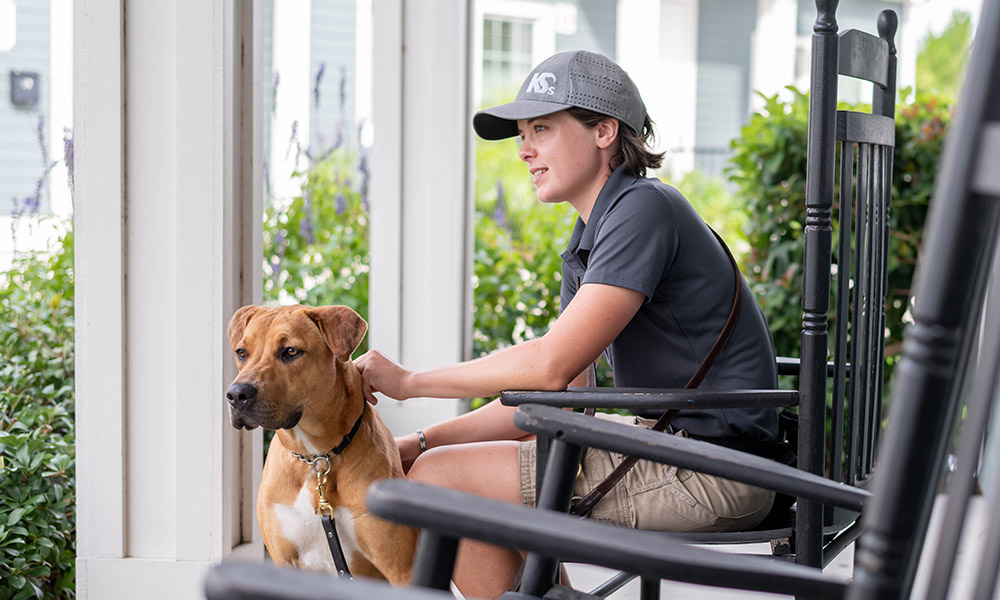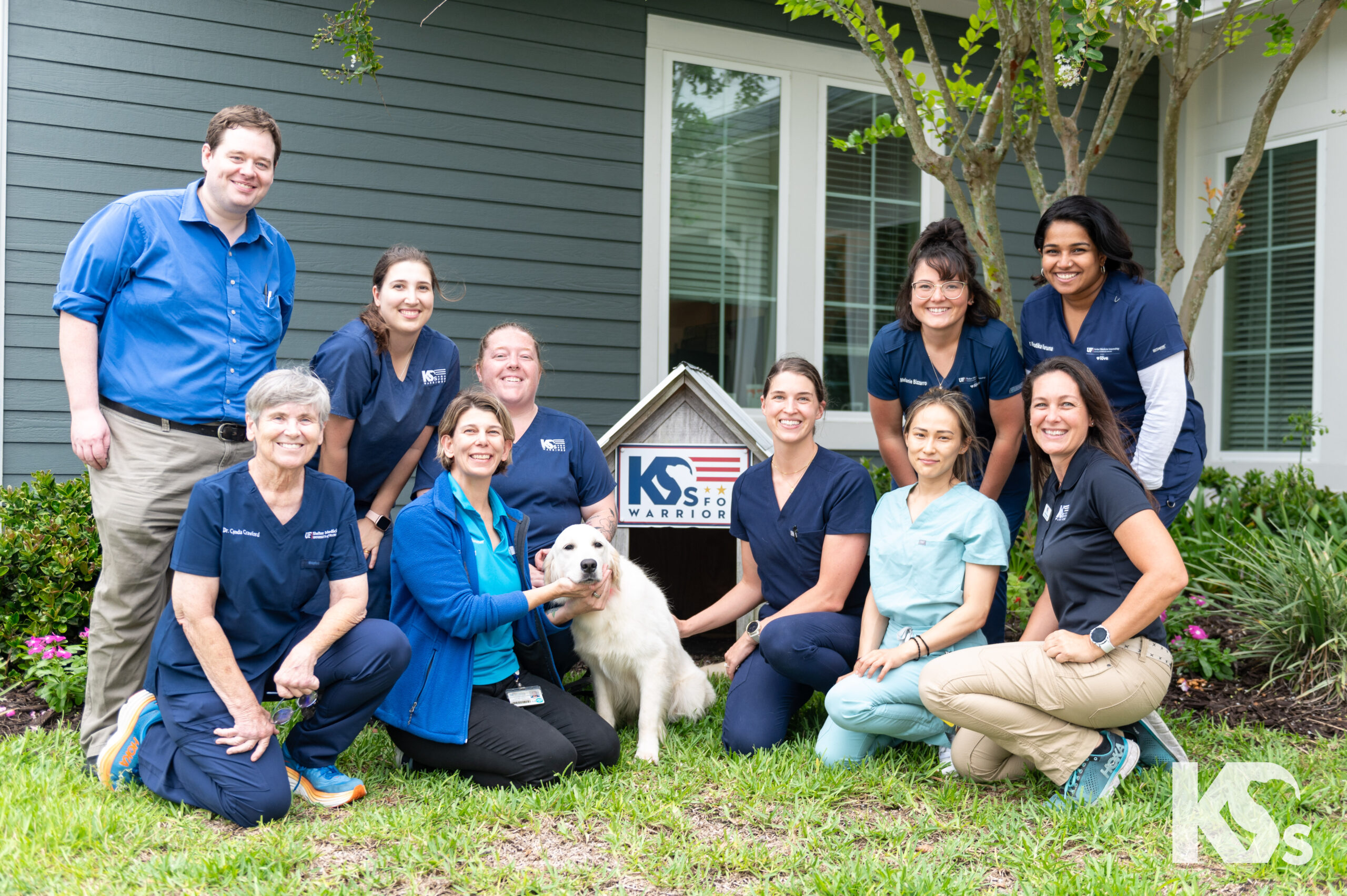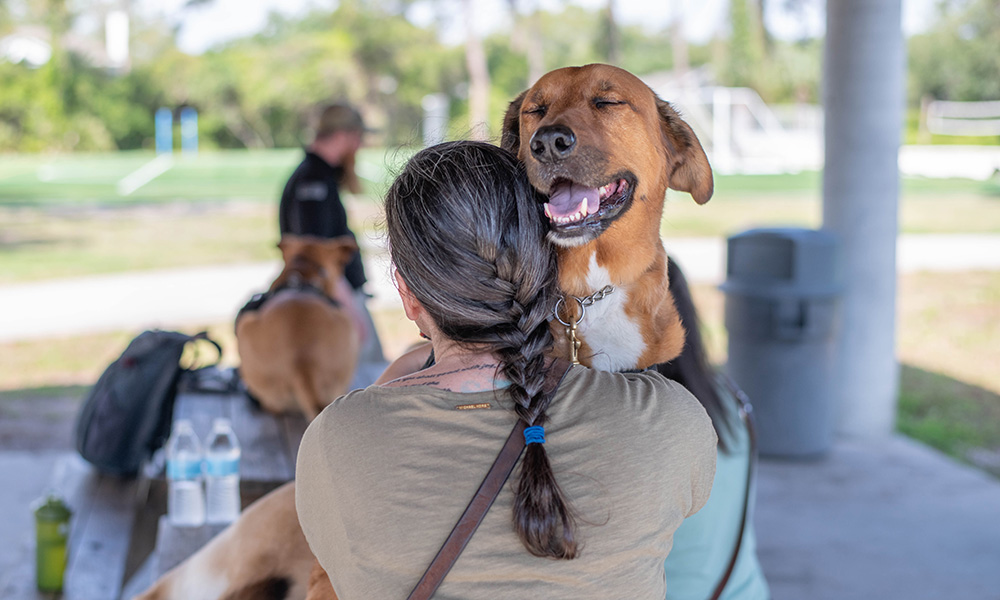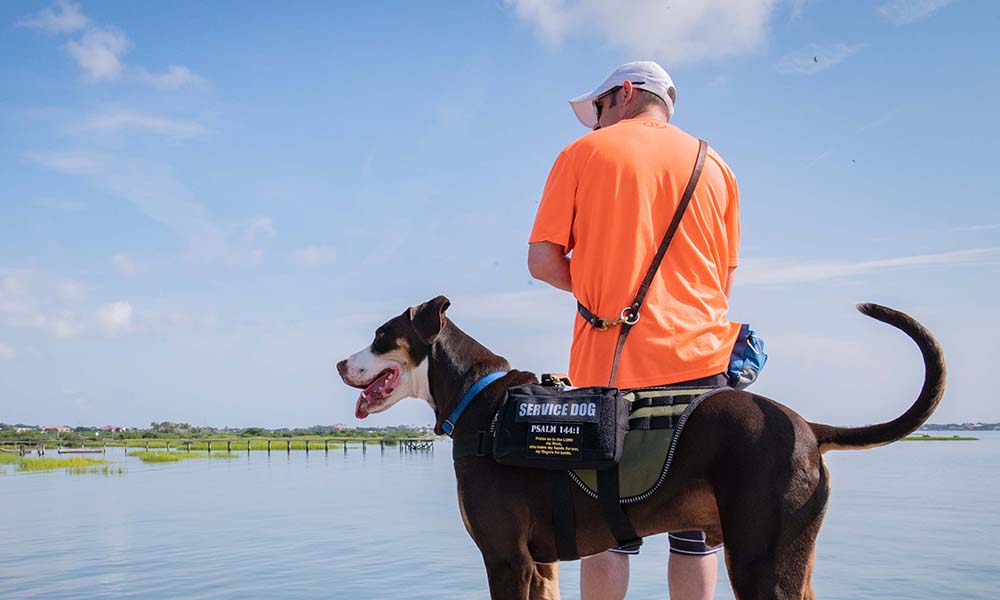We’ve all heard that dogs are “man’s best friend”. There’s a history between dogs and people that stretches back a millennia. Researchers say that the beginning of this relationship started with our nomad ancestors and the wolves that followed them. There is believed to have been some sort of mutually beneficial relationship between the two. From there, humans began to select the friendliest or most social of the wolves to go with them and with time, they became the goofy, varied, friendly dogs we know in modern times.
We see ancient depictions of dogs with their masters, hunting with them, enjoying the indoors with them, and even being lavishly buried with them. We can feel the bond we have with our dogs. Today, if you walk down the brimming aisles of your local pet store, you’ll see just how enthralled we are with our animal counterparts. We know each other’s habits, likes and dislikes, and we sometimes can even pick up each other’s feelings. But what scientific evidence do we have that shows this bond, and how does this relate to service dogs and PTSD?
The Science Behind the Feelings
When humans who have some sort of familial or emotional bond look into each other’s eyes, their bodies release a chemical called Oxytocin. This chemical is often called the ‘love’ hormone. It’s more technically a peptide hormone and neuropeptide. It is closely related with social bonding, sexual reproduction, childbirth, and the period after childbirth.
It’s documented in a study from 2015 that this hormone is also excreted when an owner and their dog look into each other’s eyes. To make the distinction between domestic dog and wild dog, they tried this exercise with wolves and their handlers. The wolves, even though friendly with their handlers, resisted eye contact, and therefor did not have the same hormonal response. This chemical response, nursed through generations of dog and man, sets domestic dogs apart from the wild world.
Oxytocin causes a plethora of physiological changes. It can slow heart rate and breathing, reduce blood pressure and inhibit the production of stress hormones, creating an overall sense of calm, tranquility, and focus. It’s no wonder 68% of all American households include a dog.
Oxytocin is not the only chemical that our dogs elicit, either. They also evoke dopamine and beta endorphins. Both of these are heavy-hitting ‘reward’ hormones, and their presence when spending time with our dogs was found by South African researchers. The study’s conclusions can be found here.
How Does This Pertain to Service Dogs?
It may seem obvious. Of course a service dog, specifically one for PTSD, should be able to help regulate the stress hormones that contribute to bad or worsening PTSD or anxiety. What’s key here is that one of the first line treatments for PTSD (SSRIs, or selective serotonin reuptake inhibitors) tries to use an uptake of serotonin to combat negative symptoms. Serotonin is one of the hormones released when being with a dog you’ve bonded with. This is why service dogs are a great complimentary treatment for PTSD – they could potentially keep the veteran from having to up medication doses or could help the veteran break free from the bondage of high doses of anti-depressants, which can inhibit emotions.
Service Dog or Emotional Support Animal – What’s the Difference?
Service Dogs are invariably different from therapy animals. They are required to perform a service for someone with a disability. In the case of PTSD, these Service Dogs alleviate symptoms of hypervigilance, wake the sufferer from nightmares, and act as a ‘brace’ when needed. They go beyond the simple comfort of having an animal, though that is important.
One command that is a service but also offers the comforting touch of a dog is ‘lap’. This is where the dog lays his head and front paws in the sufferer’s lap, giving them security and comfort. This is a great example of a dog performing a physical command but also offering a secondary solution: oxytocin, serotonin, and dopamine.
Service Dogs have public access rights that therapy dogs do not have. Service Dogs, because they are assisting in a disability, are protected under law in public areas. They are considered an assistive device by the ADA (Americans with Disabilities Act), so stores, movie theaters, public transport, and more are required to accept service dogs within their place of business.
Emotional support dogs are not covered by the ADA, and individual businesses can construct their own policies about how to handle them. The bond with both of these types of animals is usually very deep and beneficial for the owner. A study from Purdue University, performed by Maggie O’Haire and co-written by Kerri Rodriguez shows us the scientific story behind the anecdotal reports on how Service Dogs make people feel:







